SSI’s global engagement in refugee protection recognises that durable solutions require cross-border collaboration, capacity building, and innovative pathways.
We are shocked and saddened by the violent attack at Bondi Beach in Sydney yesterday. Our hearts go out to the people killed and injured in this attack, their families and friends, and to Australia’s Jewish community as Chanukah begins — a time that should be marked by light, hope and togetherness.
(more…)Meaningful impact isn’t created in isolation. It happens when we listen, learn, and act alongside the communities we serve.
One year ago, the Australian Human Rights Commission released the first national roadmap to eliminate racism in Australia: The National Anti-Racism Framework.
(more…)In a time of growing global displacement and complex protection challenges, collaboration is more critical than ever. SSI’s International team recently brought together sector leaders, advocates, and community representatives for a Speaker Series event, Advancing Global Solutions for Refugee Protection.
Though she never set out to build a career in music, Chilian-born singer and songwriter Magdalena Mira found herself drawn back to it time and again. Each step, shaped by chance and connection, brought her closer to where she is today.
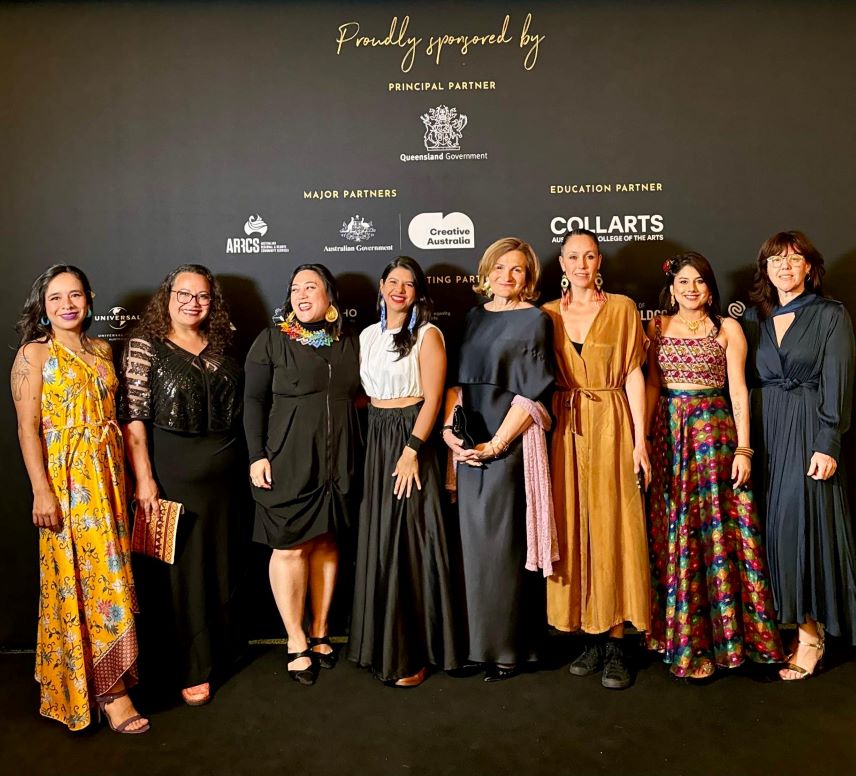
Award inspiration
In 2024, that path led her to join SSI’s delegation to the Australian Women in Music Awards (AWMA). Each year SSI supports women from diverse backgrounds to take part in the conference and awards, offering opportunities to connect, learn, and be recognised. For Magdalena, the invitation came from a close friend and opened the door to an experience that was both empowering and transformative.
“Sandra convinced me to apply, and I thought, why not? When I was selected, it felt like such a gift,” Magdalena said.
Sandra Morales was a finalist in the SSI Diversity Award in 2024. Her encouragement gave Magdalena the confidence to apply for the delegation – something she admits she would never have done on her own.
Music and life intertwined
Magdalena’s path into music was not linear. She studied music at school, but it wasn’t until life experiences and relationships drew her back to performing that she found herself committed to it.
Raising children meant she stepped away for several years, but when she returned, she came back with more passion than ever before. She formed an Afro-Peruvian band, performed at venues across Sydney, and decided she wanted to pursue music full time.
“Music has always found me. Even when I took a break, it called me back. Now I just want to keep doing it,” she said.
Connection over competition
For Magdalena, the highlight of being part of the SSI delegation was the connection with other women. She speaks warmly of the friendships formed with fellow artists and the sense of belonging that grew from their shared experiences.
“The best part was our little crew. We supported each other, laughed, connected, and had the kind of conversations that stay with you. It was such a beautiful experience,” she said.
The delegation gave Magdalena access to industry leaders and valuable networking opportunities, but what stood out most for her was how genuine the connections felt. The professional insights were powerful, and the support of the group made the experience even more meaningful.
“I learned to stay authentic. Watching other women give their all to their music reminded me that being true to yourself is what matters most. That’s the only way to sustain a career and a life in music.”
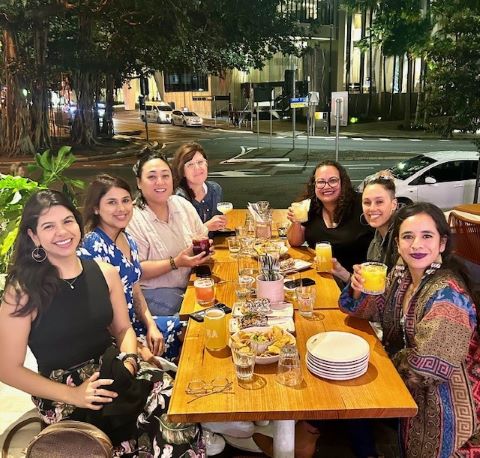
The power of visibility
Magdalena believes events like AWMA play a vital role in giving visibility to women in music, especially those from diverse backgrounds. The conference offered her exposure to people she would never otherwise have met, and a chance to see how the industry works in Australia.
She also recognised the importance of collective strength.
“When women come together with authenticity, they create real strength. That’s why events like AWMA matter. With their influence, they hold a responsibility to lift up diverse women in music and ensure their stories are seen and heard.”
Carrying it forward
Since AWMA, Magdalena continues to perform and create music. The lessons from the delegation – about authenticity, resilience, and community remain part of her approach to her career.
She keeps in touch with some of the artists she met, follows their journeys and celebrates their achievements.
Reflecting on the experience, she hopes more women take the chance to be part of future delegations.
“If I could give advice, it would be to just be yourself. Don’t try to be someone else. Your voice and your story are enough.”
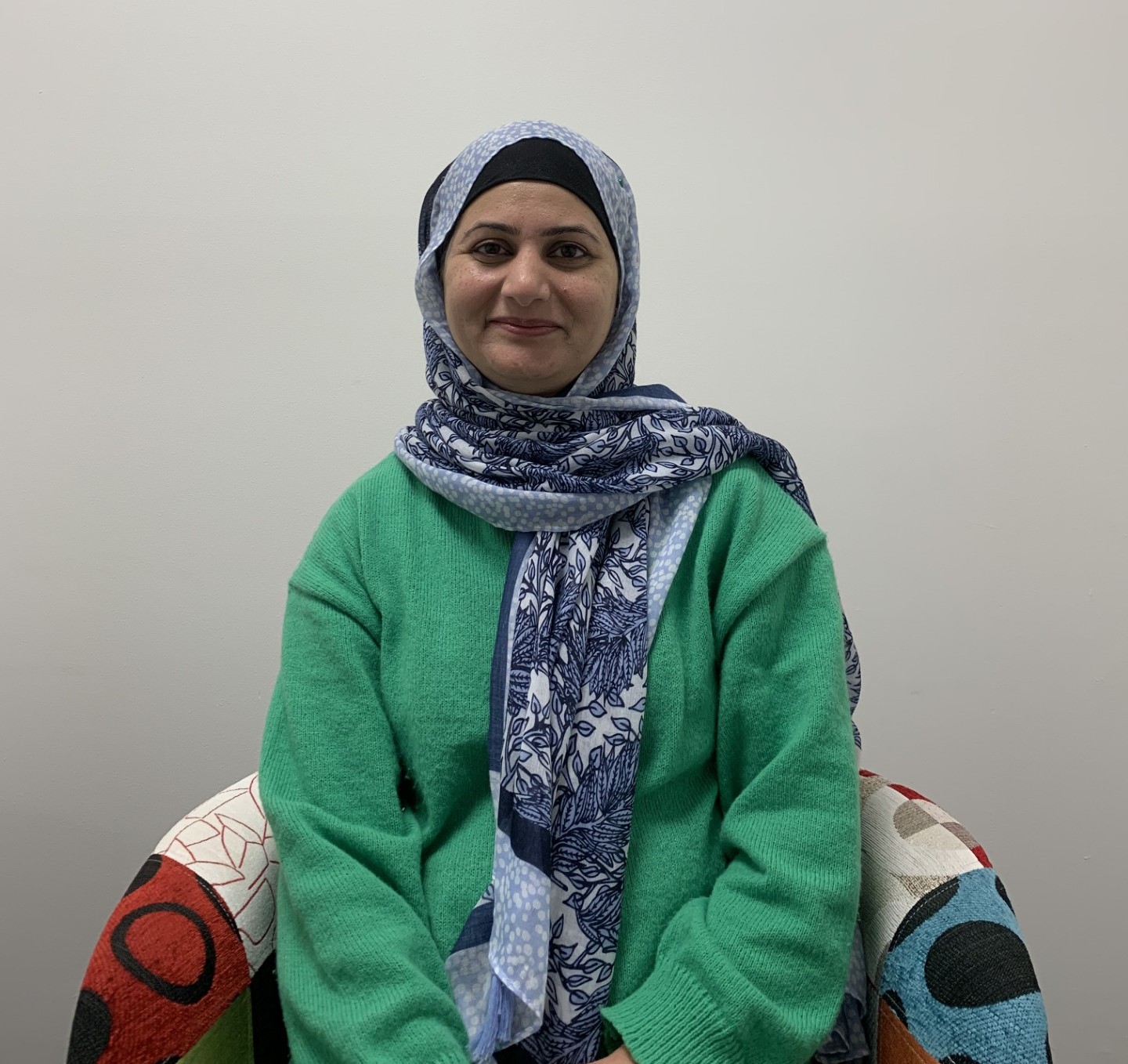
Participating in The Rights Path Project as a Lived Experience Consultant helped Rabia—a mum of two from a Pakistani background who speaks Urdu, Punjabi and English—discover her voice and recognise her role as an advocate within her community.
Rabia’s experience navigating the NDIS and challenging stigma
When her son was diagnosed with a speech delay disorder and began receiving NDIS-funded therapies, Rabia found herself navigating not only unfamiliar systems, but also the cultural silence that surrounded disability in her community.
“If I would have been in Pakistan, I can’t talk about this,” said Rabia.
“Everybody has their own concept of what disability is to them, it’s a stigma and especially from the community I am in, it’s like a taboo. We can’t talk about this.”
This silence makes it difficult for families like hers to speak openly, ask for help, or advocate for support.
Discovering her rights and herself
Before becoming involved in The Rights Path Project, Rabia didn’t fully understand her rights or the role she could play in supporting others. As a Lived Experience Consultant for the project, she contributed her personal perspective and community insights to help shape culturally responsive, in-language resources about participants’ rights under the NDIS and how to advocate for services and supports.
“I didn’t know my rights. But after getting involved in this project, I got to know myself,” said Rabia.
“I identified myself. My skills, my hidden potential. I asked myself, “What can I do?” I can speak. I can share my opinion. I can raise awareness.”
Rabia learned how to navigate the NDIS, what to expect from providers, and how to raise concerns, and gained the confidence to speak up.
How Rabia is using her experience to support others
Since participating in the project, Rabia has become someone others turn to for support. She speaks to families from her community who are facing similar challenges, many of whom felt they had no one to talk to about their NDIS journey or their child’s diagnosis. Her openness has encouraged others to speak up, ask questions, and understand their rights.
“I can be trusted, and people are trusting me,” said Rabia.
“I learnt that our community needs us and what I have learnt in this project is that I can share it with my community. I can share knowledge; I can share my experience. I can share what I have learned. I can spread the word.”
Now the resources are available, Rabia sees this as a new beginning. She’s continuing to raise awareness and create safe spaces for others to talk about disability without shame.
How The Rights Path resources help others
- The resources we’ve created are a helpful guide for anyone facing similar issues.
- The videos encourage people to speak up and highlight the importance of advocacy and self-advocacy in the NDIS system.
- They empower individuals to understand their rights and the steps to take when problems arise.
- Even if someone doesn’t have a support coordinator or can’t reach one, the simple five-step guide in the fact sheet will help them advocate for themselves.
- It’s essential that these resources are available in community languages, so language barriers don’t stop people from understanding how to file a complaint.
- The community education workshops will also be a great help for those who need additional support.
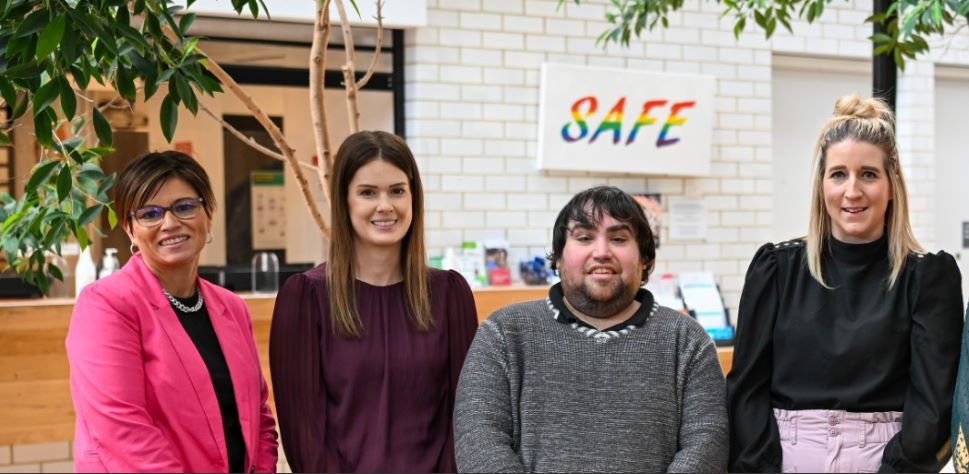
When Jess Shelton joined Ballarat Community Health (BCH) two years ago, she inherited an existing cultural training module – one that wasn’t hitting the mark.
“It was long, wordy and not engaging. Out of the 250 staff we assigned it to, only 20 completed it in two years,” Jess said.
Determined to find something that would be truly meaningful, Jess went searching. A simple Google search led her to SSI’s Diversity Training, and it changed everything.
“As soon as I tried the free module sample, I knew this was different. It was interactive, relevant, and most importantly, it’s tailored to healthcare,” she said.
Since switching to SSI’s training, the shift has been immediate and measurable. In just two weeks, 40 staff members had completed the training – double the number who had done the previous course over two years.
Training that connects with people and practice.
Ballarat Community Health provides inclusive, bulk-billed health services to people in the Ballarat region, many from culturally and linguistically diverse backgrounds. Their staff need more than a surface-level understanding of inclusion. They need depth, empathy and cultural insight.
“We needed something more than a tick-box exercise,” Jess explained. “Our community is diverse, and so are the challenges people face when it comes to accessing healthcare. To respond to that, our staff need real training that speaks to lived experiences and systemic barriers.”
What stood out most about SSI’s training was its interactivity, sector-specific content and human focus. Jess also praised the learning design, which delivers high-impact education in a short timeframe, a key factor in a busy healthcare environment.
“The training is only 30 minutes, but it’s packed with depth. It’s bright, engaging and speaks to real scenarios our staff deal with every day.”
Making real change. Not just completing a module.
The impact of the training at BCH isn’t limited to completion rates. It’s directly influencing organisational culture and planning.
“I’m currently rewriting our Diversity and Inclusion Plan and I’ve pulled directly from the training to shape our goals,” Jess said.
Inspired by SSI’s approach, BCH is embedding principles like inclusive language, personalised care and accessibility into its internal frameworks. Even staff who technically didn’t need to complete the training have asked to take part. A sign, Jess said, that the training resonates on a deeper level.
“That’s when you know you’ve got something special. When staff go out of their way to say, ‘Can I do this too?’”
A stronger, safer workplace for all.
For BCH, diversity training isn’t a one-off requirement; it’s part of creating safer spaces for people from all backgrounds.
“We work with communities that experience disadvantage and health inequity,” Jess said. “To offer real support, we need to understand people, their backgrounds, barriers, and the diversity within communities.”
SSI’s training helps organisations do just that. It’s grounded in inclusivity, relevance and practical application, not just theory.
“You can get free training elsewhere, but it won’t have the same impact. This was affordable and actually helped us change how we think and work.”
The bottom line? It works.
SSI’s Diversity Training is more than education. It’s a catalyst for cultural change, and organisations like Ballarat Community Health are seeing the difference.
“It speaks for itself. It’s already changing how we operate, and we’re just getting started,” Jess said.
To see how SSI Diversity Training can work for your organisation, get in touch today at diversitytraining@ssi.org.au or call us on 02 8799 6700.
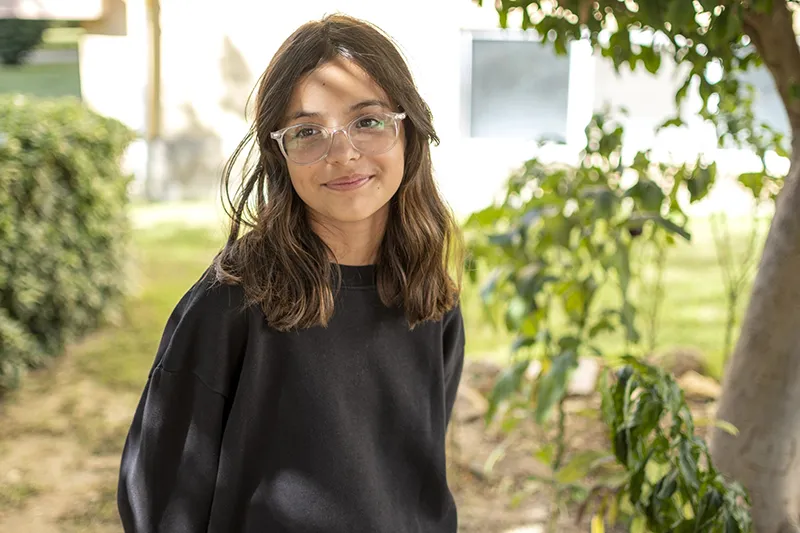
For 11-year-old Emma Ralph, support from her NDIS local area coordinator (LAC) Julie Bergmanis has had a huge impact on her health and wellbeing. A time in her life once defined by hardship has now become a journey towards freedom and security.
Beginning the journey as a person with disability
In 2022, Emma suffered a cardiac arrest and was diagnosed with Catecholaminergic Polymorphic Ventricular Tachycardia (CPVT), a genetic disorder that can lead to life-threatening heart irregularities called arrythmias.
Emma’s condition restricts her from doing certain tasks, and outdoor activities such as going to the beach or pool, can be risky. Caring for Emma also represents a significant time investment for her mother, Sheree, who believes that greater access to medical equipment could alleviate much of the stress involved in making sure Emma is safe.
Julie’s role as Emma’s LAC began in February 2024, and since then, she has worked tirelessly to acquire and install a heart defibrillator outside her home for emergencies.
“It’s unfair that people like Emma are unable to access lifesaving items or afford the high cost of owning one,” said Julie.
Connecting with mainstream and community supports
While Emma is a participant on the NDIS, certain health-related supports are instead arranged through mainstream and community services. So Julie began exploring local initiatives to find the vital equipment Emma needed. She found a collaboration between a charity, Heart of the Nation, and organisations in the Macarthur region that install Automated External Defibrillators (AEDs) in the community.
Julie recognised it as the perfect opportunity to improve Emma’s quality of life. Her discovery also represents the crucial role that LACs play in identifying and navigating mainstream health supports for their participants.
“Before Julie, it was really hard for Emma, as the people before her never took her heart condition in mind when doing things for her,” said Sheree.
After liaising with Heart of the Nation for many months, Julie’s efforts proved successful, and an AED was set up in January 2025 in Emma’s housing community. This is a big step forward in her healthcare journey. Her home now feels safe, just as it should.
This recent development has been a great result not only for Emma. The defibrillator has also helped another child in foster care next door, and will help others in the area with similar health needs, now and in the future.
Achieving goals with a strong support network
Despite these achievements, Julie knows that her work as Emma’s LAC is far from over. Their frequent meetings help Emma understand that, in addition to her close family and friends, there are many supports out there aiming to keep her safe and healthy.
“Emma always appreciates all the work that Julie does for us,” said Sheree.
With these health supports now in place, Emma can focus on other goals, such as her high school studies or dedicating her time to arts and crafts.
“Emma knows if she needs help, she has all the support from her teachers, myself, and Julie,” Sheree said.
Through her role as an LAC, Julie hopes she can continue being an important part of Emma’s life, helping her achieve her goals and allowing her to experience life to the fullest.
Learn more about SSI’s disability services
Learn about SSI’s range of disability services on our website. You can contact your local area coordination team at:
Phone: 1800 960 975
Email: ssilac@ndis.gov.au
With the threat of Cyclone Alfred looming over parts of Queensland and NSW in February/March, SSI staff got to work providing information and support to keep migrant and refugee communities, as well as other vulnerable groups, safe during the natural disaster.
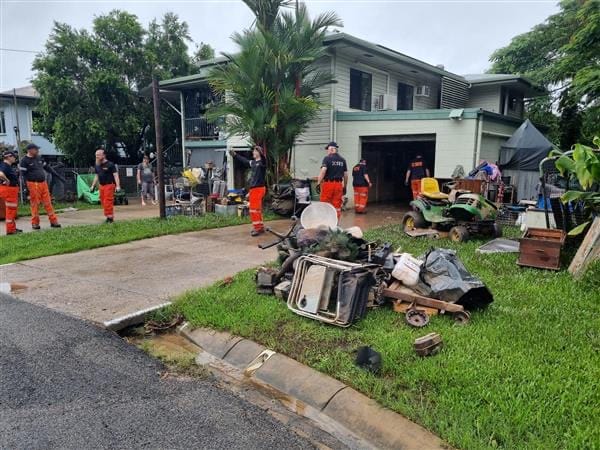
Image courtesy of NSW SES
Meet Sahba
SSI Community Relations Officer Sahba Hamid went above and beyond to ensure that the community was safe. Although she herself was navigating the effects of the cyclone, Sahba and her team worked tirelessly to contact clients, offer in-person support, and ensure community members had the information, support and resources required to safely ride out the cyclone.
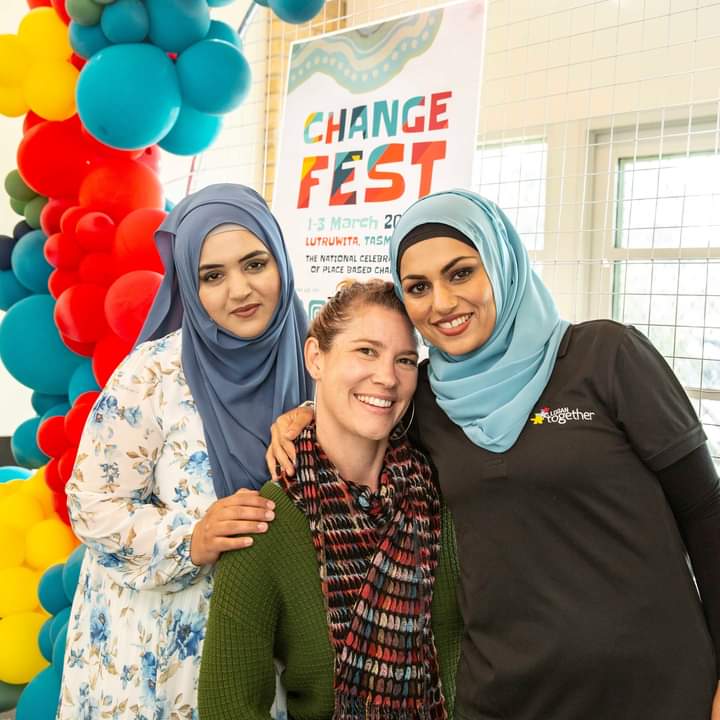
Sahba (right) with an SSI colleague and community member.
Our team of case workers checked to see what people understood and what they could do to prepare themselves and their families.
Working with community leaders, we also ensured that translated resources were available across various communications platforms. Feedback from our community indicated that there was a need for curated, simplified information to make it easier for migrant and refugee communities to understand.
Two forums were organised in partnership with other settlement services and Multicultural Affairs Queensland to prepare our multicultural communities for Cyclone Alfred. The forums were to provide access to post-cyclone recovery assistance and support to prepare for future weather events.
After the cyclone event, case workers supported clients who were affected with insurance applications, hardship payments and disaster grant applications, as well as emergency relief referrals and recovery support.
We’re able to react and help the community thanks to the funding from the Settlement Engagement and Transition Support (SETS) program funded by the federal government and the Community Action for a Multicultural Society (CAMS) program funded by Queensland government.
We’re proud of how our staff banded together to keep the community safe and informed.
